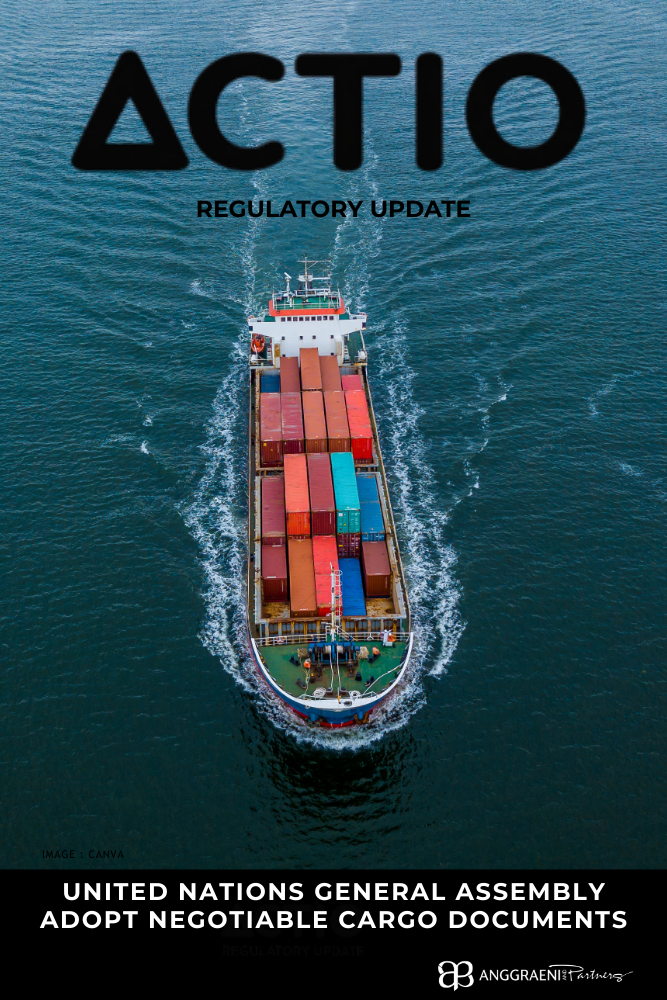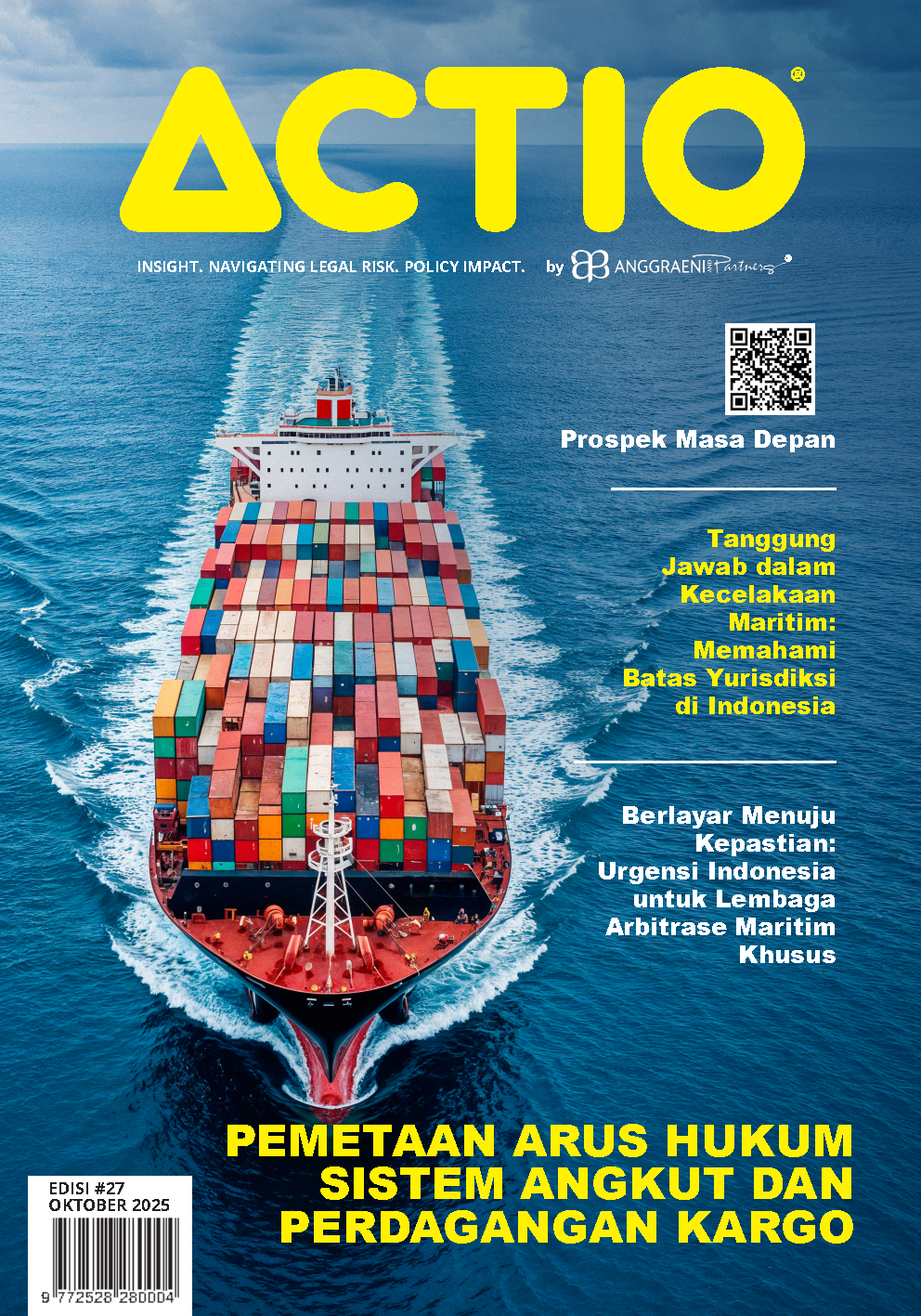DISCLAIMER
The information contained in this perspective is not intended to provide a legal opinion or views of the Anggraeni and Partners law offices against a particular legal issue.
Neither party may assume that he or she should act or cease or choose to act on a particular matter based on this information without seeking advice from professionals in accordance with the certain facts and certain circumstances it faces.
Tourism1 contributes to economic growth in Indonesia in general and the economic growth of local entrepreneurs. Transactions carried out by business actors with domestic and foreign tourists may potentially cause disputes, such as fraud, and failure to provide service and product standards as contractually agreed.
In such a dispute, the tourists, be they domestic or foreign tourists, are consumers. This is based on the definition of consumers as regulated in Law Number 8 of 1999 concerning Consumer Protection (“Consumer Protection Law”). A consumer is every person who uses goods and/or services available in the community, whether for the benefit of himself, his family, others, as well as other living things and are not for trade. Therefore, disputes that occur in the tourism sector involving tourists and business actors enter the realm of consumer protection law.
Under Indonesian Consumer Protection Law, there are two ways to settle consumer disputes, namely litigation and non-litigation, which consists of mediation, conciliation, and arbitration.2 In addition, the Consumer Protection Law also regulates the existence of a special agency formed to undertake efforts to resolve consumer disputes through non-litigation channels, namely the Consumer Dispute Settlement Agency (“BPSK”).
Litigation
Litigation envisages that the aggrieved party can commence proceedings in the domestic courts to claim for their loss. The entire process is transparent, except for the mediation process, which is required by the court before the judge examines the case at trial. If the parties have made any efforts to resolve disputes outside the court, the Consumer Protection Law stipulates that dispute resolution in court can only be taken if the dispute resolution outside the court is unsuccessful. Although the dispute resolution process court often takes a long time, the resulting decision has executive power so that if there is no further legal action, the decision can be implemented immediately.
Mediation
In the context of Consumer Protection Law, the mediation in question is mediation outside the court because it is regulated as an alternative dispute resolution (“ADR”) separate from litigation. Based on Law Number 30 of 1999 (“Arbitration and ADR Law”), mediation is a method of resolving disputes through a negotiation process to obtain an agreement between the parties involved with the assistance of a mediator who is jointly selected by the parties. The mediator is a third party who acts as a neutral intermediary and does not have the authority to impose a settlement of the case. This results in the parties being able to control the procedures and pace of mediation. In addition, the advantage of mediation is that the process is confidential and relatively less time consuming than litigation.
In addition to mediation described in the Consumer Protection Law, mediation is also carried out in court as part of the litigation process. Supreme Court Regulation Number 1 of 2016, provides that court mediation is mandatory for cases before entering the examination stage in court.
Conciliation
According to Arbitration and ADR Law, conciliation is an attempt to resolve a dispute between the parties. Conciliations are confidential and low cost, and usually involves a conciliator or an expert. The difference with mediation is that the conciliator has the authority to submit written recommendations regarding dispute resolution.
Arbitration
Arbitration is a dispute resolution based on an agreement. Parties have the authority to choose a forum for resolving disputes, the parties are also authorized to determine the law that applies to their dispute as outlined in the agreement. The advantages of arbitration are that the process is confidential, relatively fast, and the parties can choose an arbitrator who they assess has sufficient competence to provide a fair resolution. Parties are more likely to comply with the decision of the Arbitrators as they may sense that they have had more control in choosing the person charged with resolving the dispute. However, arbitration also has some drawbacks. In terms of costs, arbitration often costs more than other processes. In addition, the parties cannot file an appeal or cassation against the arbitration award.
Consumer Dispute Settlement Agency
As previously mentioned, BPSK is an agency whose purpose is to facilitate efforts to resolve consumer disputes. In examining a dispute, BPSK forms an assembly consisting of the government, consumers, and business actors. BPSK is likely to be perceived as fair since different stakeholder’s interest and perspectives are represented. However, the drawback of BPSK is the misalignment of its arrangements in the law and its implementing regulations, where there is no legal certainty regarding the final and binding nature of the award.
Therefore, in the event of a dispute between consumers and business actors in the tourism sector, consumers and business actors can choose to resolve the dispute through the domestic court, mediation, conciliation, or arbitration as stipulated in the Consumer Protection Law. Each dispute resolution mechanism has its own advantages and disadvantages.
For further information, please contact:
S.F. Anggraeni
Managing Partner
fitri@ap-lawsolution.net
I Made Diyosena B.
Paralegal
diyosena@ap-lawsolution.net
[1] Undang Undang Nomor 10 Tahun 2009 tentang Kepariwisataan, Pasal 1 angka 3. Pariwisata merupakan banyak rangakaian kegiatan wisata yang didukung dengan berbagai fasilitas dan layanan yang disediakan oleh masyarakat, pelaku usaha, maupun pemerintah
[2] Undang-Undang Nomor 8 Tahun 1999 tentang Perlindungan Konsumen, Pasal 45.


